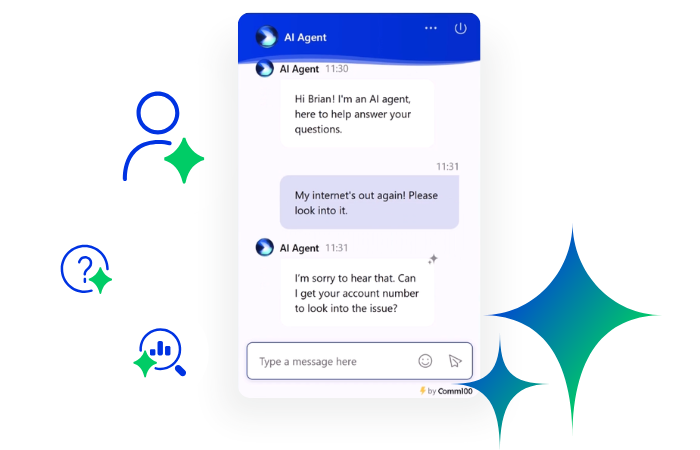This is the first of a two-part series about digital
customer engagement and HIPAA compliance. In this post we cover the role of the
software vendor in protecting Personal Health Information (PHI). The second
post explores the core requirements of a HIPAA-compliant digital engagement
platform.
The need to preserve the privacy and sanctity of personal healthcare
data requires no deep explanation. We all understand what’s at stake, and we
expect healthcare providers to go to great lengths – whether required by law or
not – to defend our right to privacy. What’s new however are our
expectations around service delivery.
Today, patients and clients of all kinds are increasingly demanding that the consumer
experiences they have elsewhere should be mirrored by healthcare providers.
Adopting a patient-centric approach to healthcare opens up a
wealth of new opportunities to attract new potential patients and earn market
share through modernized, efficient services. But moving from legacy or
paper-based systems to modern patient engagement software platforms introduces
the risk that patient data could be inadvertently shared with the wrong people,
lost, or even stolen.
The consequences of not protecting against that risk are significant – financial penalties for patient data breaches under HIPAA can quickly run into the six figures, and reputational damage can be equally as devastating. That’s why it’s important for healthcare providers looking to introduce new digital engagement channels to understand the risks and be able to assess how well potential vendors offer protection.
One regulation, different interpretations
The Health
Insurance Portability and Accountability Act (HIPAA) was introduced in 1996 as
a set of requirements to safeguard patient data – Protected Health Information
(PHI) – from unauthorized access or distribution.
Before a healthcare provider starts working with a vendor, both
parties must sign a contract that explains their respective commitments towards
HIPAA compliance and the safeguarding of PHI. Vendors who do this are
classified as “Business Associates” under HIPAA, and agreement put in place is
referred to as a “Business Associate Agreement” (BAA).
HIPAA mandates
that PHI should be handled privately and securely, with provisions for
appropriate notifications in the event of a data breach also outlined in the
Act. Business Associates need to have specific processes in place to ensure
compliance.
One of the
things that makes assessing a vendor’s HIPAA compliance challenging is that there are no formally acknowledged
certifications that vendors can undertake to guarantee that the safeguards they
have made are rigorous enough. This means that different vendors may interpret
their responsibilities under the Act in different ways, and put different
practices in place, while still claiming to be HIPAA compliant.
Successful partnerships require shared responsibility
Given that almost two-thirds
of historical data breaches involved a Business Associate, it’s
important for healthcare providers to be appropriately informed about the
responsibility a vendor must accept in the event of a PHI data breach.
In the eyes of the law, if a data breach were to occur then
the healthcare provider themselves would be responsible by default. It’s then
up to the healthcare provider to prove that any third party contracted by them was
ultimately responsible. Proper HIPAA processes on the vendor’s part should not
only ensure that PHI breaches are unlikely, but they should also ensure that
were any breach to take place, responsibility would be shared.
The extent
of that shared responsibility, however, can vary from one vendor to the next. The
degree of responsibility that vendors take on can be ascertained through
documentation that explains the processes they have adopted to ensure HIPAA
compliance. In other words, the deeper the processes in place, the more likely
the vendor is to understand its role and responsibilities, and to have measures
in place to protect PHI. This results in more confidence on the part of the
healthcare provider to partner with that vendor.
Details Matter
You
shouldn’t need to perform your own assessment of the vendor’s compliance to
HIPAA. Patient engagement software vendors who claim HIPAA compliance should undergo
thorough risk assessment with a reputable third-party firm every year. That
third-party firm should assess the vendor’s security, privacy and breach
notification procedures, using sometimes hundreds of measures to check that
processes are appropriately strict, and produce a detailed report with the
findings.
While
vendors can perform their own in-house risk assessment, using a third-party
assessor guarantees that vendors are being assessed in line with true best practices
for HIPAA compliance. Similarly, a third-party firm known for reliable HIPAA
assessments will look at the full range of potential HIPAA risk areas, and not
simply assess security risks in a narrower sense without reference to the Act.
You should ask potential vendors for a copy of their most recent risk assessment report to check how they performed. In the event that the report reveals deficiencies, you should ask to see what remediation plans are in place to address them.
In part two of this series on HIPAA compliance we’ll explore the core requirements of a HIPAA-compliant digital engagement platform.






